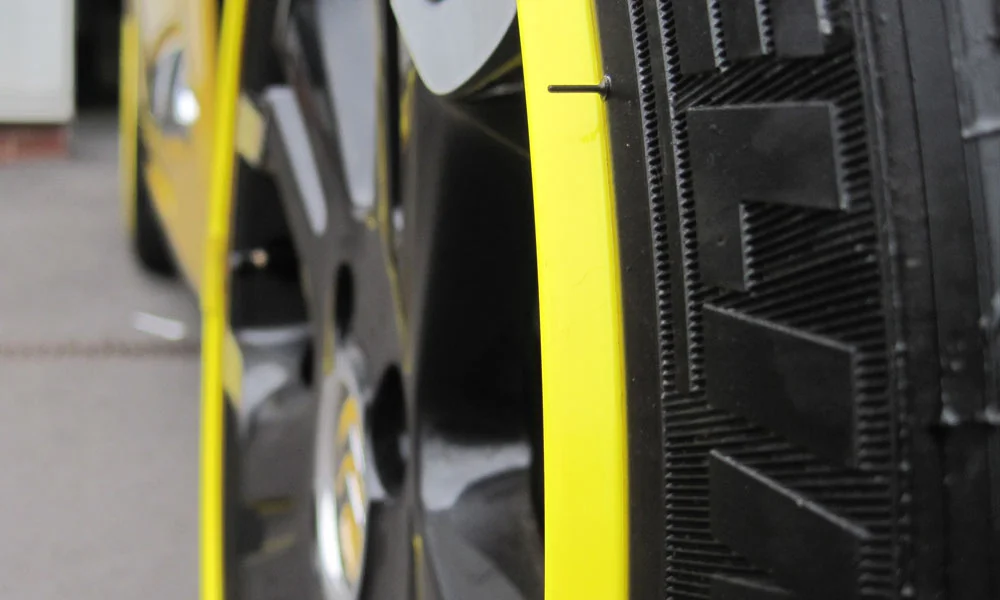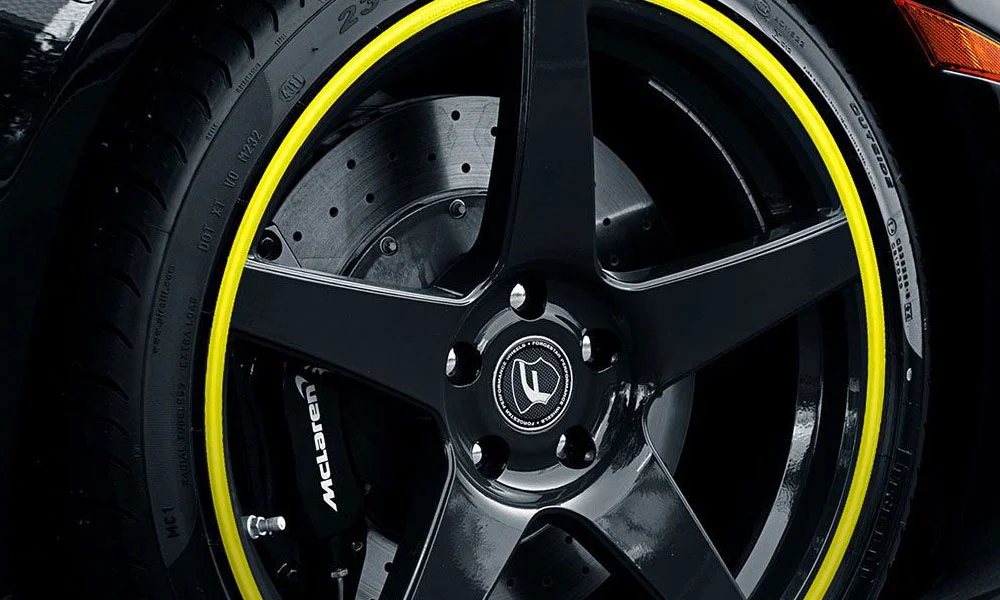
What are alloy wheel rim protectors?
Published on 25 May 2021
Alloy wheels can be a great addition to a car and feature on many new models. Although alloy wheels are sleeker and nicer to look at, their large diameter makes them more vulnerable to damage which can tarnish the overall aesthetic.
An alloy wheel rim protector is a strip of plastic or rubber that is applied to the edge of the alloy wheel in order to protect the rim from scratches and damage.
What types of alloy rim protectors are there?
There are two main types of alloy wheel rim protectors:
Alloygators
Alloygators are nylon rim protectors that fit between the alloy and tyre.
This type of rim protector is a bit more pricey and will require a professional to have it implemented, however it offers the strongest form of protection in comparison to other rim protectors and does not rely on the quality of the adhesive to remain in place.

Self-adhesive
Self-adhesive rim protectors are generally made of rubber material and are applied to alloy edges. These can be fitted by yourself and are a cheaper alternative, however they will not offer as much protection against damage.

What are the advantages of alloy wheel rim protectors?
Alloy wheel rim protectors have a number of benefits and can offer protection against kerb scrapes and wheel scratches.
Protection against scrapes
Alloy wheel rim protectors can buffer the impact from kerb damage instead of the alloy wheel, maintaining the appearance of the wheels.
Money-saving
As the rim protectors keep the wheels from getting scratched, this saves car owners money on wheel repair and maintenance expenses.
Customisation
Alloy rim protectors are often available in a range of vibrant colours which means that you can customise your protectors to complement your car’s overall aesthetic.
Should I get alloy wheel rim protectors for my car?
If you have alloy wheels, alloy wheel rim protectors can be a useful tool for maintaining the sleek appearance of the wheels and preventing damage to them.
There is evidence that alloy wheel rim protectors do offer some protection against light scratches but there have also been reports of drivers complaining that their protective strips have come off whilst driving.
This could suggest that the strength of the glue might depend upon the specific finish design of the alloy wheel.
You should also take into consideration the fact that alloy wheel rim protectors are not made to cushion the impact of severe damage. They are designed to protect the wheels from light scratches to maintain their appearance.
What type of rim protector should I choose?
Will an alloy rim protector work on my wheels?
It is not advisable to use alloy wheel rim protectors on alloys with a diamond cut or paint finish.
If you want to know if an alloy rim protector will work on your wheels, you should contact your local garage or a specialist for advice.
4-step guide to fitting alloy wheel rim protectors
Some types of alloy wheel rim protectors such as alloygators must be applied by a fitting specialist as they will slot in between the alloy and tyre.
This can be more expensive but as you are soliciting the service of a trained specialist, they will have the right knowledge and tools to make sure that the job is done correctly.
Self-adhesive rim protectors can be applied by yourself if you follow these steps:
- Firstly, clean the wheel before application and make sure it is thoroughly dry.
- Secondly, apply a primer to the wheel and leave it to dry.
- Then, peel off the backing tape of the alloy rim protector and stick it to the rim of the wheel.
- Cut off overlap.
- Do not immediately drive the car following a protector fitting as the glue won’t have set properly yet. Leave it for roughly 3 days to dry.
Mendadent provide specialist alloy wheel repair and restorations services in Greater Manchester.